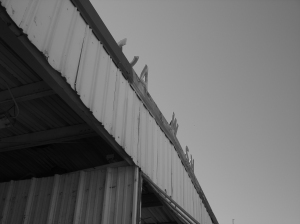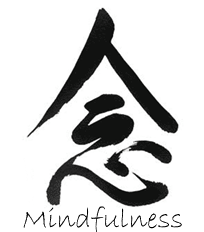There’s this sense I get that being human is somehow incongruous with our spirit. It’s as if we are caught in this perpetual tug-of-war between what we are, and where we are going. As humans, we are awash in emotions, urges, ideas. We want things, and we want to be things. At the same time, we are most comfortable when we just are, without striving, planning, or strategizing. At times, it can be an unnatural juxtaposition of motivations.
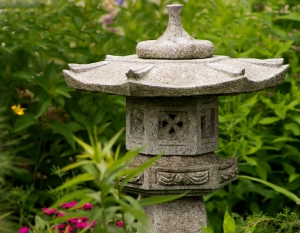 We are told that being “in the moment” is what we should strive for, but the demands of our careers, our relationships, and our own scattered lives defy us in this goal. We are forced to plan, living in the future. We are held accountable for our actions, dwelling in the past. To not do these things is to miss out on the essence of being human. Our current state of existence has its requirements.
We are told that being “in the moment” is what we should strive for, but the demands of our careers, our relationships, and our own scattered lives defy us in this goal. We are forced to plan, living in the future. We are held accountable for our actions, dwelling in the past. To not do these things is to miss out on the essence of being human. Our current state of existence has its requirements.
However much we have to gain from navigating our humanness, we know there is something beyond that. On some basic level, we recognize that we are here to love one another, to learn and grow. But it’s just so damn hard.
Truly living in the moment is difficult to do, isn’t it? We are told we should meditate, center ourselves. It’s a nice concept, and when we accomplish it, we are satisfied. This is what I am supposed to be doing, we think, but so often we fall short.
We judge, ourselves and others. We intend to live spiritually and to love one another, but the “other” just seems so unlovable a lot of the time. It’s a constant struggle. Humanness versus spirit. Integrated versus fragmented. Yes, there’s a lot for us to learn, mired as we are in our human condition.
Learning to be in the moment, to be with ourselves, is a painful process, fraught with setbacks and awkward and unwelcome moments of self-revelation. Most of us have not been taught these skills, by our parents or in school. Self-awareness is something many people don’t have the tools or the motivation to achieve. It simply doesn’t seem accessible, and is dismissed as some sort of new age nonsense.
One healthy way to accomplish the mind-body connection is through rigorous physical activity. While mountain climbing, for example, we are completely in the moment. We don’t know what the next foothold is going to be until we get there. We have to live in the now: vigilant, expectant, aware. We are in our bodies and focused, readying ourselves for whatever comes next.
Use of alcohol or drugs can be another shortcut to the state of mind we all instinctively seek, a “quick way” to marry body and spirit. Right or wrong, all judgments of these behaviors aside, they put us in the moment. It may not be healthy for our bodies, but spiritually we are seeking. The stereotypical drunk drapes his arm around his friend in a sappy sweet gesture. “I love you, man,” he slurs. But it’s the truth. Egos set aside, we love one another, unabashedly. That’s part of being human. We worry about the details, but beneath it all is love. And we are looking for ways to love one another. We don’t think we are, but we are. It’s really that simple.
Romantic relationships are another shortcut to spirituality. Think about it – the physical, and the spiritual. We are connecting on both levels when we are in a romantic relationship with someone. It’s inherently gratifying – our humanness and our spirit, both in sync. Maybe this is what being human is all about. It certainly feels that way when we are in love with someone. Nothing else matters except that connection. When we are with another person romantically we are wholly in the moment, and regardless of the ramifications we feel compelled to pursue that connection. All the sex addiction, all the infidelity…perhaps it is just an attempt to reach this sort of truth. This marriage of body and spirit.
So, what I’m suggesting is this: all of us – whether we are Buddhist monks, adulterers, marathon runners, or junkies – share the same goal. It is an aim that is uniquely human and, at its most basic level, honorable. We want to join our humanity and our spirit. I’m not saying there is a right way or a wrong way. I’m not even sure that any of us get there in our lifetimes. All I’m trying to say is that we are trying. And maybe that effort – that is the thing the matters. Maybe it is enough.

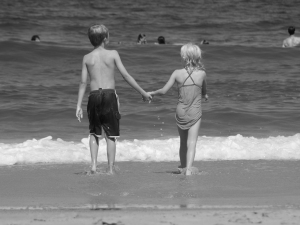 Still, I thought I was lonely. I built tree forts and yearned for a friend – a Diana to my Anne (of Green Gables) – to come climb with me. We would giggle and tell secrets. She would know my heart and understand me without a word.
Still, I thought I was lonely. I built tree forts and yearned for a friend – a Diana to my Anne (of Green Gables) – to come climb with me. We would giggle and tell secrets. She would know my heart and understand me without a word.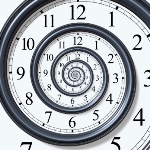 set aside for myself, for my creative work, and I was using it to make a shopping list. Even though I give myself permission to write whatever comes to mind, I have hopes of directing my creative energies a little more effectively than that.
set aside for myself, for my creative work, and I was using it to make a shopping list. Even though I give myself permission to write whatever comes to mind, I have hopes of directing my creative energies a little more effectively than that. There’s nothing to write about, not the same old things or anything earthshattering and new. The same people, the same work. The same face in the mirror. The same train whistle in the not-too-distance, on its way to somewhere. I don’t even feel particularly curious where – I, who used to gaze up at the sliver of a jet traversing the blue and wonder to what faraway place all those people were headed.
There’s nothing to write about, not the same old things or anything earthshattering and new. The same people, the same work. The same face in the mirror. The same train whistle in the not-too-distance, on its way to somewhere. I don’t even feel particularly curious where – I, who used to gaze up at the sliver of a jet traversing the blue and wonder to what faraway place all those people were headed.

